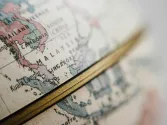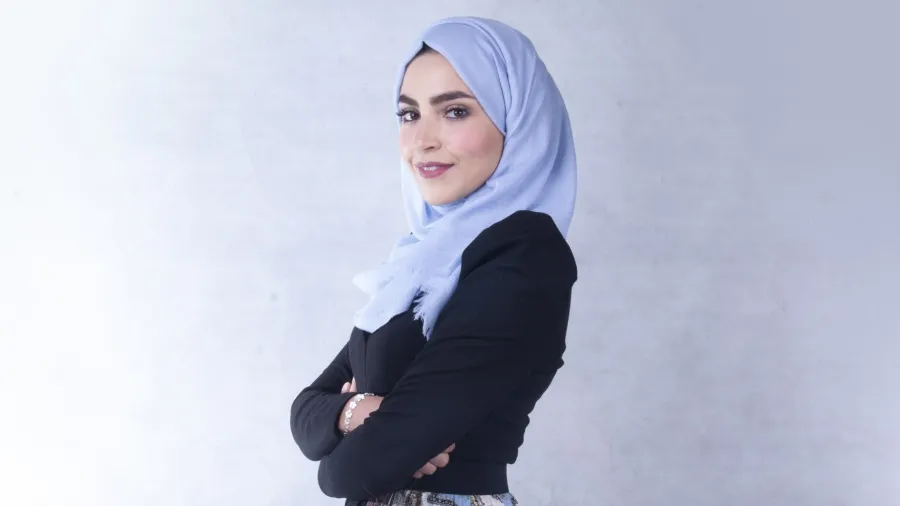
Masdar gains foothold in Southeast Asia through Indonesian solar project
It is set to launch what would be the largest floating solar PV plant in Indonesia this year.
Masdar has been critical in keeping the United Arab Emirates’ stance as a global leader in the energy sector. Now, the company has set its sights on expanding into Southeast Asia. But out of all the renewable energy markets in the region, why did Masdar start with Indonesia?

Masdar President Director for Indonesia Eng. Fatima Al Suwaidi shared with Asian Power her recent move to Indonesia to oversee the completion of the Cirata floating solar photovoltaic (FPV) power plant, the first of many projects the company had lined up for the region. She also discussed the ropes the company had to learn as it entered the Southeast Asian market, beginning with Indonesia.
“Masdar [has] a footprint in almost 40 countries. We're looking at probably doubling or tripling our existing gigawatts in the next five or 10 years,” Al Suwaidi said.
“The Cirata project was our first investment in Southeast Asia, and it's not going to be our last.”
Tell us more about the Cirata floating solar photovoltaic power plant in Indonesia. How will floating solar power benefit Indonesia?
The Cirata project is considered to be one of the largest floating solar projects in the region, and one of the largest also in the world. If I'm not mistaken, it's number five in terms of size. Once fully operational, it will be the largest in Indonesia. This project, of course, demonstrates Masdar's capacity as an innovator to deploy the latest technologies at scale across diverse geographies.
This project is tailored toward Indonesia's characteristics. As we know, Indonesia is unique from the perspective of the geography, the environment, and the regulatory framework, as well as where there is limited land availability. The project is solving a problem that is seen in many parts of the region, actually in Asia Pacific, and in nations dependent on coal and gas power—it will contribute to the reduction of carbon emissions.
The scheduled commercial operation date of Cirata is in the second half of this year. This is as per the requirement in the power purchase agreement with PLN. Also, this technology is quite interesting and attractive to a number of other countries in Asia Pacific region that we know are looking into floating solar PV plants as a solution to the scarcity of land with expanding populations, meaning land resources become more and more obsolete, right? Land is becoming much more allocated for other critical needs, such as agriculture and food security of countries, and even housing. So going forward, we're looking at growing a floating solar portfolio significantly in this region, given the need and the interest.
Another benefit that comes to Indonesia out of this project is that, once Cirata is completed, it will save approximately 40% of the fuel required by the local diesel power plant. From the environmental perspective, we're going to be powering around 50,000 homes in the West Java province. Cirata, being the first and the largest, is becoming a showcase for the government that such a unique technology can be deployed at scale. Also, considering the unique challenges of the Cirata reservoir, once it's fully operational, it will demonstrate to the government that such challenges have solutions. Masdar can address such constraints by looking at the specifics of the location of the country of the technology and making sure we are able to connect all the dots and we look ahead and we're able to benefit the country as a whole.
You mentioned it is targeted to be operational by the second half of this year, is Masdar on track?
We are working very closely with the contractor to be able to achieve all the requirements of the power purchase agreement that we have with PLN. We also have a very good support system in Indonesia—the government, all different stakeholders from the Ministry of Energy, Ministry of Industry, Ministry of Investment, PLN, of course, as an off-taker, and our partner in the joint venture. We have quite a good support system that allows us to be confident that our timeline should be achieved. In any project, there are challenges, we make sure that we're able to mitigate potential risks before they happen. We are, of course, working in unforeseen circumstances with the pandemic. Also, the different regulations that different countries would impose because of the pandemic present a unique circumstance to the project. However, again, we're working very closely with the team on-site, on the ground. I'm talking to you from Jakarta. I'm already based in Jakarta to oversee the project so there's a lot of commitment from everyone involved. Our partner PJBI, which is a subsidiary of PLN, has been very much supportive of the project so far and has been able to help us maneuver and find a way around the challenges that we're facing.
Aside from the Cirata floating solar power plant, Masdar also signed a memorandum of understanding to explore the exportation of renewable energy from Indonesia to Singapore. What were the reasons behind this move to tap Indonesia during this exploration for Singapore's energy resources.
Yes, our portfolio strategy, which has served us extremely well to date, is growing into more than 40 countries, with a capacity of almost 14 gigawatts (GW) of operation and under development of renewable energy. That equates to around $20b of investment. It is to grow assets to a meaningful scale, in relevant geographic and technology verticals, meaning that we are expanding exponentially across the globe. We are able to see synergies between different countries, we are also able to assess in a much more efficient manner, how we can contribute to countries that are moving in the direction of renewable energy, climate change, and climate action, right? We're looking into doubling down in key geographies and technologies we know very well. We seek long term bankable projects with clearly defined risk boundaries, as well as strong partnerships in the countries where we operate. We rely on our expertise in Abu Dhabi which also extends across the globe. Our local presence and our ability to scale to make the right connections and find the right opportunities, wherever we find them. This specific opportunity with Indonesia and Singapore was established from the relationships between the countries. Different players are also proposing to bid on this project. From our side, we have participated in a very strong consortium of partners that we have right now. We're looking at this very strategic project from many angles. One angle is the huge benefit it brings to the Singaporean energy market, as well as on the other side of the Indonesian side. We're using the expertise and the knowledge that we've gathered so far through the Cirata project, and our presence in Indonesia to help us facilitate such collaboration. We see this to be quite a strategic project as well, because, if I'm not mistaken, it probably will be the first of its kind, throwing cables from Indonesia to Singapore. And we're talking about up to 1.2 GW of solar. It's not going to be easy for sure. But we're known to venture into challenging areas that we're able to pioneer and innovate and to also amplify our existence and presence in those countries.
Given these two projects, why did Masdar choose Indonesia in implementing these renewable energy projects?
I would say the projects choose their location, more or less, right? We believe in partnerships. Partnerships bring projects and projects would really define the location. Indonesia is quite a strong market. It has huge potential on the renewable side, they also have quite high targets in achieving new and renewable energy, as we know, 23% by 2025 and also to expand or grow more over the next 10 years.
The new renewable energy plan, also known as RUPTL, in Indonesia, has quite a lot of targets for renewable energy on the solar, wind, hydropower, and geothermal side. Indonesia is definitely one of the key markets, it's one of the most populous countries in the world and brings with it a lot of potential. The UAE and Indonesia have established and are also strengthening their bilateral relationships. That would definitely boost the collaboration opportunities between both countries.
Especially for Indonesia, the market that a lot of the investors are actually quite interested to invest in is its development. And you see the regulation moving towards more flexibility as we saw from the release of the omnibus law, for example, that would be much more flexible for foreign investors. We see the government putting a lot of effort into providing a welcoming regulatory framework for foreign investors to be able to boost innovation, and advance clean technologies within the market. The same thing we see in other countries in this region.
Having said that, Indonesia is not the only country on our radar, we are also planning to grow quite a lot in the Asia Pacific and Southeast Asia. We have a dedicated team focused on that. We have high ambitions and targets to significantly grow our presence in this market. And for us, Indonesia is just a start.
What are the challenges faced by Masdar in pursuing these projects in Indonesia? And as well as in the ASEAN region? And how did the company address these?
Other countries might be more advanced when it comes to the implementation of renewable energy, such as Vietnam, Thailand, and Singapore. We see that this region, again, just like any other region, requires constant presence from our teams. Hence, for example, I'm based here, and we have a team based in Indonesia and in Singapore. This is because it's very important that we maintain the momentum, we understand the market from within, we understand what sort of dynamics this market brings, who are the influential stakeholders we need to understand and partner with, what sort of considerations we need to keep in mind. We are making sure that when we venture into a market, we're really taking into account all the local factors that need to be considered for us to succeed in that market. Because when we come in, our objective is to come in for the long term. We want to make sure that we are building a local team with a local presence in a way that will not only support the economy of that country but also boost Masdar's portfolio in that region.
What kind of plans does Masdar have to tap into the renewables potential of Indonesia and Southeast Asian regions in services like to share with us?
In terms of Indonesia, we have a lot of plans and even in the Asia Pacific, we have quite a long pipeline in the making. In Indonesia, we have partnered recently with an Indonesian conglomerate and created a joint venture called Solar Radiance. Solar Radiance is a developer of solar installations that are behind the meter, for example solar rooftop, and ground mount. This is focused on the commercial and industrial (C&I) sector. This is following the regulations that we see opening up in the C&I market. That market is emerging quite quickly, there is huge potential and we are tapping into it through this joint venture.
We believe that this will give us quite a wide reach around Indonesia, because we're talking about solar installations for the C&I market that is spread across Indonesia. Indonesia is a big market and that is the same for the other Asian countries that we're looking at. We're also contemplating, maybe going into hydropower. As I mentioned, the Indonesia renewable plan has quite a big chunk dedicated to hydropower energy. And from the Masdar perspective, when we venture into a market, we try to understand how the market is functioning, and also what sort of directions they're moving forward to and we see whether it aligns with Masdar's interests and mandate or not. So Indonesia has quite a lot of potential on hydropower, that could be one venue that we would venture in if opportunities arise.
Of course, we will continue to be participating in IPP tenders that are issued by PLN. That is, of course, one venue that we are always prepared to participate in the Asia Pacific. There are quite a lot of opportunities that are being discussed on a B2B basis. In some parts, in some countries, depending on the bilateral relations, we're also looking at G2G partnerships.
Also recently, in Indonesia, we have partnered with Pertamina Power, which is one of the state-owned enterprises in Indonesia. And we'll look into both B2B as well as IPP projects.
So there's a lot of projects in the making. We have quite a lot of ambitious plans. We're coming here, we're hitting the ground running and the fact that we've established a dedicated team in Indonesia, really, is another testament of our commitment to the Indonesian market.
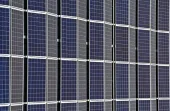

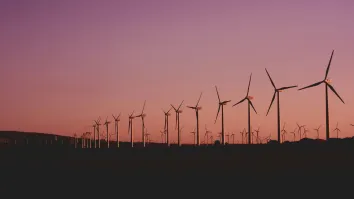
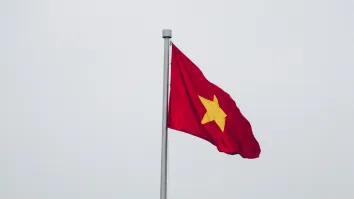
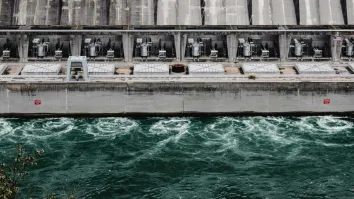
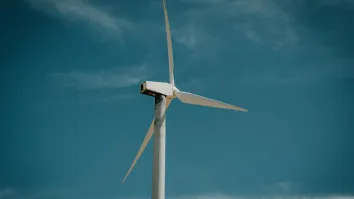
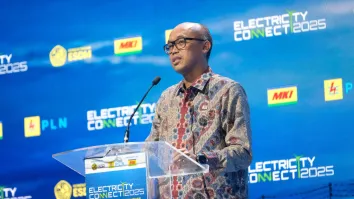
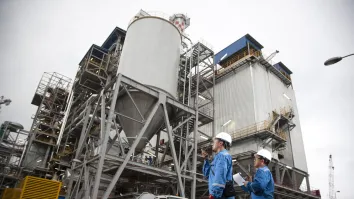
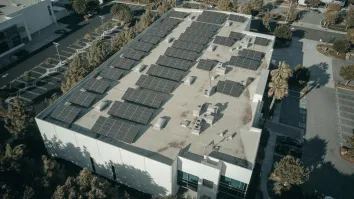

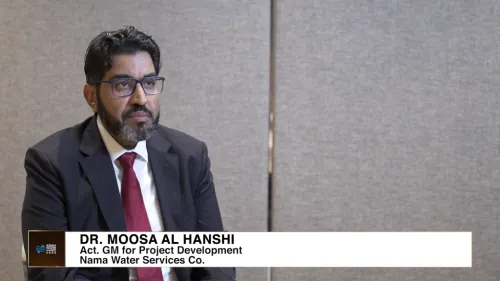

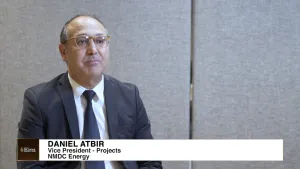
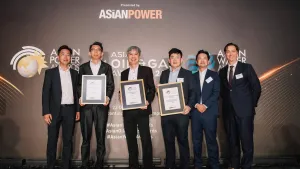



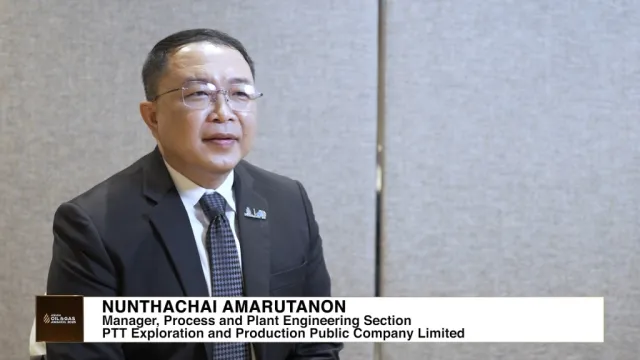

 Advertise
Advertise


